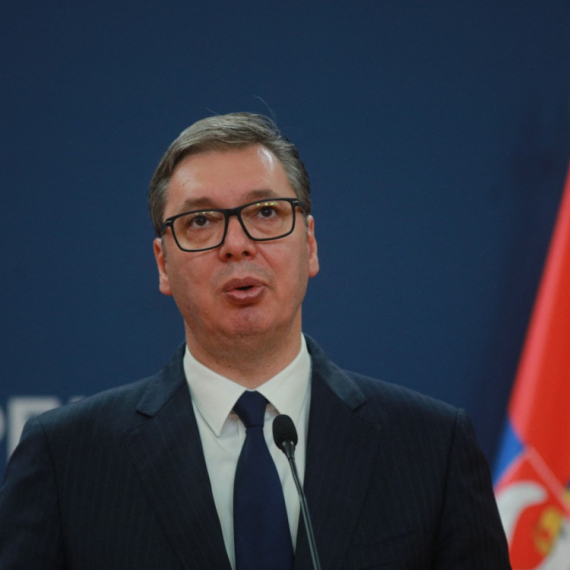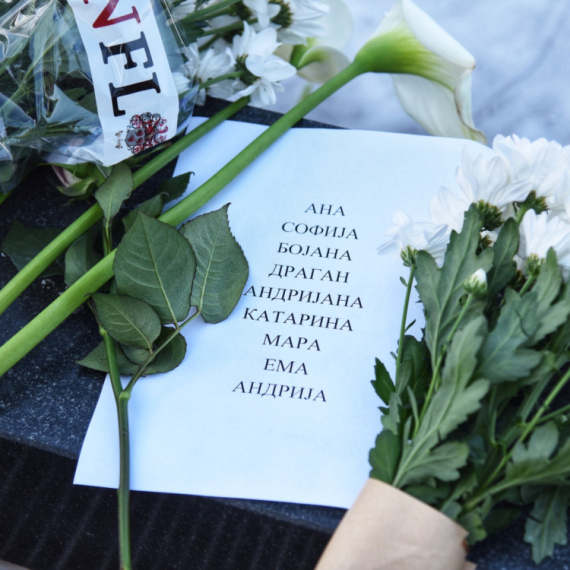"EUR 3bn from remittances in 2009"
Serbian citizens working abroad sent more than EUR 3bn to the counry by the end of November 2009.
Monday, 08.02.2010.
09:59

Serbian citizens working abroad sent more than EUR 3bn to the counry by the end of November 2009. This is according to the data from the National Bank of Serbia (NBS). "EUR 3bn from remittances in 2009" Compared to 2008, the remittances increased by EUR 700mn or about 27 percent, Belgrade daily Politika writes. The central bank receives information about remittances from commercial banks, but many bring money home themselves, so the figure could be even higher, analysts say. According to the statistics of the central bank, the foreign exchange inflow from remittances between 2005 and 2009 was more than EUR 13bn, and USD 11.5bn between 2000 and 2005. "Some are probably wondering how much we would be paying for one euro, had the amount of money sent by 'our next of kin' been lower by only a third," writes the newspaper. "Nobody has calculated that, but without a doubt, RSD 100 limit for one euro would have been exceeded a long time ago," says Politika. “The fact that we have been spending about one fifth more than we have been producing for the past five years, has for the better part been covered by abundant help from Serbs from the diaspora,” Goran Nikolic of the Institute for European Studies (IES) points out. “What’s most important, we do not have to pay back this money to, like for example, the World Bank or International Monetary Fund (IMF), whose loans are considered very favorable,” he said. Nikolic stressed that remittances were an important factor for the increase in the foreign exchange reserves (from EUR 1bn in 2003 to more than 6bn in 2009). A considerable part of imported foreign exchange is being saved in banks that offer several times higher interests than it is usual in Europe and world, the newspaper writes. “However, only a small percent of hard currency remittances was used for savings and what is known as productive investment, that bring income and create new jobs,” says Vladimir Grecic of the Institute of International Politics and Economics.
"EUR 3bn from remittances in 2009"
Compared to 2008, the remittances increased by EUR 700mn or about 27 percent, Belgrade daily Politika writes.The central bank receives information about remittances from commercial banks, but many bring money home themselves, so the figure could be even higher, analysts say.
According to the statistics of the central bank, the foreign exchange inflow from remittances between 2005 and 2009 was more than EUR 13bn, and USD 11.5bn between 2000 and 2005.
"Some are probably wondering how much we would be paying for one euro, had the amount of money sent by 'our next of kin' been lower by only a third," writes the newspaper. "Nobody has calculated that, but without a doubt, RSD 100 limit for one euro would have been exceeded a long time ago," says Politika.
“The fact that we have been spending about one fifth more than we have been producing for the past five years, has for the better part been covered by abundant help from Serbs from the diaspora,” Goran Nikolić of the Institute for European Studies (IES) points out.
“What’s most important, we do not have to pay back this money to, like for example, the World Bank or International Monetary Fund (IMF), whose loans are considered very favorable,” he said.
Nikolić stressed that remittances were an important factor for the increase in the foreign exchange reserves (from EUR 1bn in 2003 to more than 6bn in 2009).
A considerable part of imported foreign exchange is being saved in banks that offer several times higher interests than it is usual in Europe and world, the newspaper writes.
“However, only a small percent of hard currency remittances was used for savings and what is known as productive investment, that bring income and create new jobs,” says Vladimir Grečić of the Institute of International Politics and Economics.





























Komentari 2
Pogledaj komentare